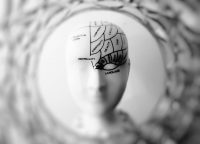How we think, feel, and act are vital components of the human biopsychological profile. The larger population of people are much more concerned about the physical effects and consequences of their actions but only a few care well enough to go to the root by finding out the actual cause of the effect. This is where Physiology Psychology comes in.
In this post, we are going to discuss this very important career pathway that is almost never discussed in present times.
Table of Contents
- What is Physiology Psychology?
- Who Are Physiological Psychologists?
- Physiological Psychology Career; How To Become A Physiological Psychologist
- Popular Schools In the US for this Career
- Physiological Psychologists Jobs and Opportunities
- Physiological Psychologist Salary
- Qualities You Should have If You Want To Be A Physiological Psychologist
- Other Careers Similar To Physiology Psychology
- Conclusion
What is Physiology Psychology?
The Etymology of the Words
Physiological Psychology also known as Physiology Psychology is derived from two words; Physiology and Psychology. The former is primarily a Greek derivative of the word Phusiologia meaning Natural Philosophy, and Latin (from the 17th century); Physiologia.
Physiology is the study of the functions of the various parts of the human body and how they work in tandem to keep us alive and working.
Psychology on the other hand is a Latin derivative of the word; Psychologia (17th century from the Greek word Psyche and Logos). And it transliterates into English as the study of the mind, spirit, or soul. And the mind controls the way we think, feel, and act.
Physiological Psychology Definition
On merging the two words, Physiology Psychology will therefore be defined as the field of study that deals with the biological functions of the human body and how it affects how we think, feel, and act (the mind).
In a modern world career, it is a branch in the field of psychology that deals with the anatomical, biological and physiological aspects of psychological phenomena. This means that the study is deep-rooted in the fundamental principles of human anatomical, and biological functions.
Who Are Physiological Psychologists?
Physiological Psychologists are Psychologists who specialize in the study of how our body tissues and internal organs and the pathophysiological processes going on there influence our mental states, emotions, and behavior.
They often work with medical teams in a healthcare setting to integrate improvements for patients that have physical problems or disabilities.
Hence, they also try to apply their knowledge on how the brain reacts to treatment for patients who suffer cognitive impairment or other neurological disorders.
To become a Physiology Psychologist, you need at least a Master’s degree in Physiological Psychology or similar fields before you can find an employment opportunity.
What Does A Physiological Psychologist Do?
This field of study takes an empirical approach and a practical approach in the study of the human brain and human behavior. And research is a major component that Physiology Psychologists use in their work.
Physiological Psychologists adopt a practical approach in the discovery of the links between the nervous system and other body systems and how the brain produces a particular behavior in response to a stimulus.
They Study The Link Between The Mind And Body

Physiology Psychologists believe that a person’s mind is a result of the workings of the nervous system. They deal with issues relating to sleep, emotions, the senses, communication, learning and memory, ingestion, and reproductive behavior. They also deal with certain neurological disorders and study psychopharmacology to understand how drugs affect the brain.
To help you understand the roles of a physiological psychologist better, you should think of the mind and body as two entities that are interlinked in functions. Even though the mechanism by which consciousness forms in the brain are yet to be completely understood, the brain has a prominent effect on our thoughts and personalities.
The brain has chemicals known as neurotransmitters which serve as a communicator between one neuron and another. Such chemicals like dopamine and serotonin play important roles in determining our mood, appetite, and thinking.
Imbalance in these brain chemicals is the cause of certain mental illnesses like Parkinson’s disease, depression, schizophrenia, autism, and certain personality disorders.
Physiological Psychology Experiments and Research
As a major tool in the study of human behavior, Physiological psychology depends on experimental studies using animals in their works.
It is difficult to get a similar result using just animal tissues and computer programs in research and experimental studies as you would when you use humans, but it is unethical to use humans in certain experiments. Even though, results from such studies have helped the field of physiology psychology a lot.
Physiological psychologists before engaging in such experiments weigh the ethical issues to see if it is worth going into.
What Does Physiological Psychology Focus On?
Physiological Psychology can research or co-manage patients with problems related to;
- Neurodevelopment and Neurodevelopmental disorders
- Interaction of the chemicals and Neurotransmitters in the brain
- Control of certain behaviors like sex and reproduction
- Sleep and biorhythms
- Mental disorders
- Emotions
- Neural mechanisms of learning and memory
- Language
- Recovery after brain or nerve damage
Methods of Physiological Psychology (Tools they use)
Some tools used by Physiological psychologists include;
- Blood oxygen level
- Electrocorticography
- Electroencephalography
- Electromyography
- Eye movement and eye blinks
- Transcranial magnetic stimulation
- Functional Magnetic Resonance Imaging
- Skin Conductance
- Psychophysiology
- Pupil diameter
- Positron emission tomography
- Magnetoencephalography
- Heart rate and heart variability
Physiological Psychology Career; How To Become A Physiological Psychologist

High School and Secondary School Education
If you are still in high school and are interested in taking up a career in Physiology psychology, then you should start preparing for the career journey from your high school. You should take courses in psychology if your school offers such classes. Also, you should take up core sciences subjects like Math, Biology, Physics, and Chemistry.
Undergraduate School
The most common pathway to becoming a Physiological Psychologist is by taking up a double major in Psychology and any other biology or neuroscience-related course. After this, you earn a Bachelor’s degree in the field of psychology.
Another career pathway is by going to medical school and graduating as a doctor. Then you can become a Psychiatrist and do a master’s in Physiological Psychology. Or go straight after graduating as a doctor to do your Masters’s in Physiology Psychology.
Psychology takes a minimum of 4 years to complete in most universities.
Masters, Ph.D./ Doctorate Degree Program in Physiological Psychology
In the past, people who want to go into this field of study receive a larger part of their training in the psychology department of their universities. But in recent times, physiological psychologists also receive training in behavioral neuroscience or biological psychology in programs affiliated with psychology departments or in any of the interdisciplinary neuroscience programs.
Most of them get their PhDs in neuroscience or a related subject.
Popular Schools In the US for this Career
- Western Washington University
- Stony Brook University
- Florida Atlantic University
- Northwest Missouri State university
- Golden State University – Aspire
- Stanford university
- Harvard University
- University of Pennsylvania
- Duke University
- University of Notre Dame
Physiological Psychologists Jobs and Opportunities
After your training and certification as a physiological psychologist, there are many lucrative job opportunities waiting for you. And because the field is not as competitive as many other fields of study, the chances of getting a job are quite high.
As a Physiological Psychologist, you can work in the following places;
- Universities as a lecturer where you can conduct research and teach students
- Private research laboratories where you conduct experiments
- Public and government-owned research laboratories
- Pharmaceutical Companies where you work with Pharmacists in the production of safe drugs
- Teaching Hospitals where you assist in the training of medical students
- Other Private and Government-owned hospitals where you take an active part in the diagnosis and treatment of diseases.
Physiological Psychologist Salary
The next important question goes like this; “Is Physiology Psychology a lucrative career path?”
If so, how much do Physiological psychologists make in a year?
Well, this data below could whet your appetite;
The United States Department of Labour, Bureau of Labour Statistics stated that the need for psychologists since 2018 is projected to increase by 14% by 2028.
This is faster than the average increase in job outlook in other occupations. This could be linked to the increasing incidence of social crimes, drug abuse, suicide, and depression over the past decade.
This will be much more beneficial to psychologists who have a doctorate degree or specialized degree as seen in Physiological psychology.
The average annual salary of a Physiological psychologist varies depending on your place of work, country, and proficiency.
In the United States, as of September 19, 2021, the average annual pay for a physiological Psychologist is $55,447. This is calculated as approximately $26.66 per hour, $1,066 per week, or $4,621 per month.
The least salary of a physiological psychologist in the United States can be as low as $20,000 per annum while the highest-paid Physiological Psychologist makes as much as $104,000 per year.
According to ZipRecruiter, the city with the highest median pay is San Francisco, CA with an annual median salary of $69,169 and an hourly wage of $33.25. Other top-paying cities include; Fermont, San Jose CA, Oakland CA, Tanaina AK, Wasilla AK, Sunny Valle CA, Hayward CA, Jackson WY, and Norwalk CT.
Furthermore, the job titles with the highest pay among Physiological Psychologists are the Experimental Psychologists with an average annual pay of $88,934 and an hourly wage of $43.24.
Others are;
- Industrial Organizational Psychology Part Time = $84,826/year and $40.78/hour
- Cognitive Psychologist = $76,939/year and $36.99/hour
- Graduate Psychologist = $75,328/year and $36.22/hour
- Psychologist Graduate = $75,328/year and $36.22/hour
Qualities You Should have If You Want To Be A Physiological Psychologist
- Good Observational Skills: Observation is a key component of the scientific method used in research. If you are considering a career in this field, you should consider working on developing your observational skills as it will play a great role in making you stand out.
- Analytical Skills: The ability to interpret carefully observed data is another very important aspect of research. Although in the course of your training, you will be trained on how to objectively analyze data, being a critical thinker could be a plus.
- Creative Thinking: Creativity is also useful in research and experimental procedures which are key components of this field of study.
- Curiosity: In this case, curiosity does not kill the cat. Curiosity is what will save the world. As scientists take bolder steps in the discovery of the universe we see, who knows we could discover the universe we do not see and how it could be harnessed in solving man’s problems.
- Problem Solving Skills: The ability to apply the results gotten from research and studies is a superpower which only a few have. Some can only understand theories, but in reality, action is what moves the world.
- Patience: The training process of Physiology psychology is quite challenging and requires patience to be able to walk through it till completion.
Other Careers Similar To Physiology Psychology
- Substance Abuse And Behavioral Disorder Counselors: They are also psychologists and work hand in hand with other health workers in the management of patients who suffer from substance abuse disorders.
- Survey Researchers: They can be from any field of study. They use the scientific methods to find solutions to problems.
- Market Research Analyst: The knowledge of psychology is very important in consumer-based marketing research to help companies involved with the production to understand better what moves people. This knowledge can be utilized in producing goods that move the market.
- Physicians and Surgeons: The relationship between doctors and Physiological Psychologists is a direct one. Both work in tandem to provide the best possible care to patients. Whether you are an internal medicine physician or a consultant in any of the surgical specialties, or a psychologist, the goal is better health for humanity.
- Mental Health Counselors: Just like every other psychologist.
Conclusion
Physiological psychology is a very interesting career choice for people who are fascinated with the mind and the understanding of how people think, feel and act.
Pursuing a career in Physiology psychology is worthwhile even though it has its own hassles, but it has a good prospect especially for people who live in the western worlds like the United States, United Kingdom, Germany, Canada, Australia, and the rest of the developed world.
Having said this, we welcome you to the world of Physiology psychology; a rare career path.
You May Also Like:
Studying Med Lab Science In Nigeria: All You Should Know
Radiologist Vs Sonographer: Career Differences and Prospects




